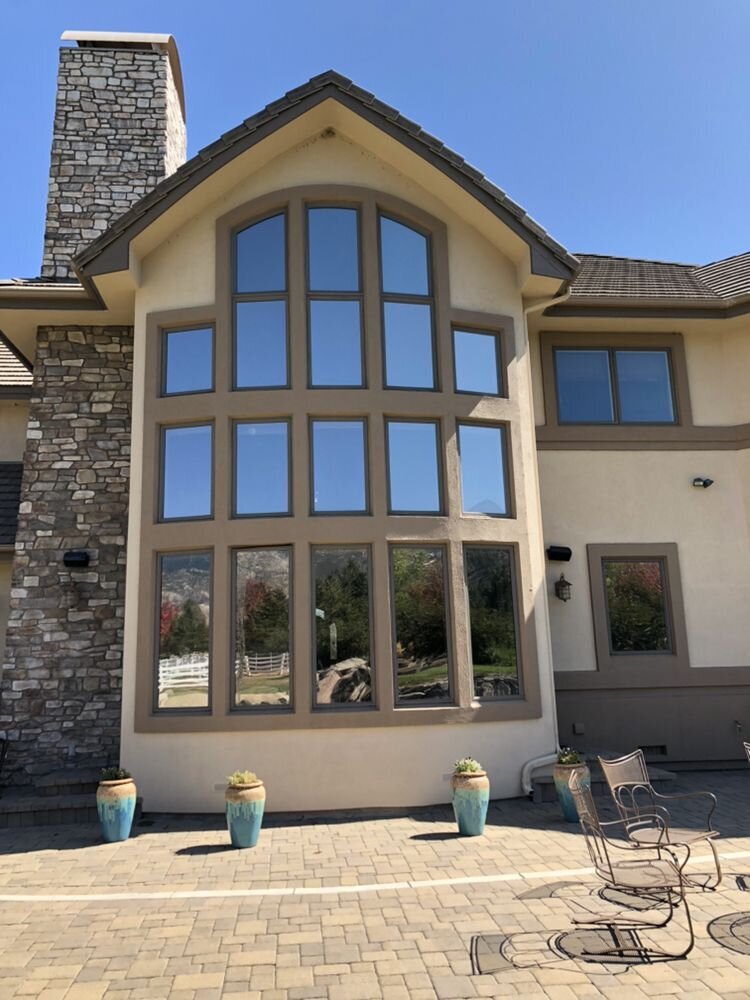Top Advantages of Installing Residential Window Tint for Your Home
Top Advantages of Installing Residential Window Tint for Your Home
Blog Article
Exactly How Residential Window Tinting Boosts Your Home's Power Performance
Residential window tinting offers an engaging remedy for homeowners looking for to boost energy efficiency within their living rooms. By using specialized movies to home windows, it effectively reduces heat transfer, therefore supporting interior temperatures and decreasing the need for too much heating or cooling.
Understanding Home Window Tinting
Understanding home window tinting is essential for homeowners looking for to boost both convenience and energy effectiveness in their home. Residential Window Tint. Window tinting includes the application of a slim film to the interior or exterior surface of glass windows. This movie can significantly modulate the quantity of sunshine and warmth that gets in a home, thus affecting interior climate conditions
There are various types of window tinting films readily available, each with distinctive properties. The efficiency of window tinting is usually determined by its Visible Light Transmission (VLT) percent, which suggests exactly how much light can pass with the movie.
Advantages of Energy Performance
Home window tinting not just enhances visual appeals however likewise plays a significant function in boosting energy performance within domestic areas. By reducing warmth transfer with windows, tinted films produce a more stable indoor climate, which can lead to significant reductions in energy consumption for heating & cooling. This power performance translates into reduced utility costs, providing homeowners with considerable long-term financial savings.

Furthermore, window tinting improves the comfort of living spaces. By decreasing glow and blocking hazardous UV rays, colored windows produce a more positive atmosphere, which can result in boosted well-being for owners. The protection against UV rays likewise aids protect furniture and flooring from fading, adding to the durability of household products.
Exactly How Tinting Works
Tinting films operate via a combination of advanced products and innovations developed to regulate the amount of solar energy entering a home. Largely made up of polyester, these films commonly incorporate ceramic or metallic fragments that take in and show heat. This dual capacity permits them to considerably lower the infiltration of ultraviolet (UV) rays and infrared radiation while allowing noticeable light to travel through.
The efficiency of home window tinting is determined by its solar heat gain coefficient (SHGC), which indicates how much solar power is transmitted with the window. Reduced SHGC values are more effective as they represent better warm being rejected. In addition, window tints can include a range of tones, enabling property owners to customize their aesthetic preferences while boosting energy efficiency.
Additionally, these films function as an obstacle, preventing warm loss throughout cooler months by mirroring indoor heat back right into the home. This thermal insulation impact matches the air conditioning benefits gained throughout warmer months, adding to a well balanced interior environment year-round. By handling solar power properly, domestic home window tinting not just boosts convenience but likewise plays an important role in minimizing energy consumption and decreasing utility expenses.
Picking the Right Color

There are various kinds of window films offered, including colored, metalized, and ceramic. Colored movies are cost-efficient however might have limited sturdiness. Metalized movies supply better warmth denial however can hinder digital signals. Ceramic films give exceptional warm control without jeopardizing exposure and are extremely sturdy, making them a preferred option.
Noticeable light transmission (VLT) is one more vital factor, as it shows the amount of all-natural light that can pass with the colored glass. House owners ought to pick a tint with a article VLT that matches visite site their illumination preferences while still supplying ample glow reduction.
In addition, evaluating the solar warmth gain coefficient (SHGC) can help figure out exactly how well a color can obstruct warmth from sunlight. A lower SHGC suggests much better warm control, inevitably enhancing power effectiveness.
Installation and Upkeep Tips
Proper setup and upkeep are vital components in making the most of the advantages of household window tinting. Professionals additionally use specialized methods and tools, which can boost the longevity and effectiveness of the tint.
Following setup, maintenance is vital to prolong the life of the window movie. It is recommended to wait at the very least 1 month prior to cleansing the colored windows to enable the glue to cure totally. When cleaning, utilize a soft fabric and a gentle, ammonia-free cleaner to prevent damaging the film. Stay clear of unpleasant products that can scrape the surface area.
Additionally, routine inspections are beneficial. Check for any type of peeling or bubbling, which can suggest improper installment or put on gradually - Residential Window Tint. Attending to these concerns without delay can protect against more damage and keep energy efficiency. By adhering to these installment and maintenance pointers, house owners can guarantee their home window tinting continues to offer significant power financial savings and comfort for several years to find.
Conclusion
To conclude, residential home window tinting functions as an efficient option for enhancing energy efficiency within homes. By reducing warmth transfer and obstructing dangerous UV rays, home window movies add to reduce energy usage and improved indoor comfort. The selection of suitable tinting products, visit this website along with proper installment and upkeep, additionally maximizes these benefits. Eventually, window tinting stands for a lasting financial investment that not only lowers energy expenses but also promotes a comfortable living atmosphere throughout the year.
Window tinting entails the application of a slim film to the interior or outside surface of glass home windows. By minimizing warm transfer with home windows, tinted movies develop an extra stable interior climate, which can lead to significant reductions in energy usage for home heating and air conditioning.The performance of window tinting is measured by its solar warmth gain coefficient (SHGC), which indicates just how much solar power is sent via the home window. By taking care of solar power efficiently, residential window tinting not only enhances comfort yet additionally plays an essential duty in decreasing energy intake and lowering utility costs.
By decreasing heat transfer and blocking hazardous UV rays, home window movies contribute to reduce power intake and enhanced indoor convenience.
Report this page